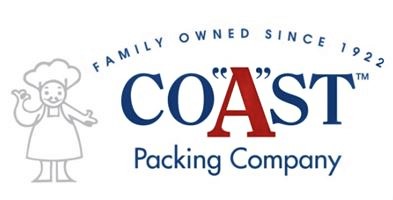As Pandemic Puts Much of Food World on Pause, Fifth Annual Coast Packing/Ipsos Survey Reveals Status Quo Attitudes Toward Animal Fat
Industry: Food & Drink
In Latest Study, Consumption Patterns Likewise Largely Unchanged
Vernon, CA (PRUnderground) February 25th, 2021
As in so many walks of life, it’s been an unprecedented year in food.
Amid COVID-19 lockdowns and quarantines, dine-in restaurants (that remain in business) embracing take-out and delivery, and sporadic shortages inhibiting an earnest return to the kitchen, the results of the fifth Coast Packing Company/Ipsos Research Animal Fats Study reflected the topsy-turvy time that commenced in March 2020.
The 2021 iteration of the survey from Coast, the number one supplier of animal fat shortenings in the Western United States, polled 1,005 adults nationwide on their attitudes and consumption patterns around animal fats – and found little change in consumer opinions and behavior. As in Coast’s original baseline survey, conducted in November 2015 and revisited annually since, respondents were asked whether they were more or less open to animal fats and whether those views extended to actual behavior. The 2019/2020 Coast-Healthy Fats Coalition (HFC) survey replaced the 2019 wave.
In the latest survey, it appears that no news is news: people’s attitudes toward animal fats, as well as their consumption of animal fats, were reported as being unchanged in recent years at a higher incidence rate than in all four of the prior waves. The findings suggest that pandemic restaurant closures may have put a damper on people seeking out a different diet, a trend that holds true for the general adult population as well as for younger respondents.
For the sample as a whole, 9 percent are now more open to animal fats, a figure that rises to 13 percent among those ages 18-34. The number of consumers less open to animal fats decreased by 15 percent from the previous wave of the study, and roughly 70 percent of respondents haven’t changed their views on animal fats. When considering households with children, 18 percent say they are now more open to animal fats.
While behavior patterns are mostly static, animal fat consumption is up for 19 percent of those households with kids, 12 percent among those in the 35-54 age bracket, and 11 percent among men and those in the Northeast.
“Nearly a year on, it’s clear that pandemic has disrupted habits throughout ‘normal’ life, not the least of which was what and where to eat, and with whom,” said Eric R. Gustafson, CEO, Coast Packing. “As our latest Coast/Ipsos survey shows, COVID effectively put the resurgence of traditional animal fats on pause.
“That said, consumers indicated that they understand that animal fats are a net positive for health and well being,” he said. “We were again pleased by the insights and thoughtfulness expressed in the verbatim responses. However the pandemic has affected their communities, today’s consumers value authenticity and want food that is made with integrity and respect for culinary traditions. That’s why the natural makeup of both lard and tallow matter so much. These products are best when minimally processed, which is consistent with the entire thrust of food and cooking right now.”
The survey included a question aimed at eliciting open-ended responses from a subset of the sample: “Why are you more open to animal fats in your diet?” Verbatim feedback, which skewed toward men and younger respondents, revealed a range of insights about increased openness to animal fats:
- “I have discovered that some vegetable fats are not as healthy as they were supposed to be, and some animal fats are not as harmful.” (male, 47, Midwest)
- “Using this type of food allows you to have special food moments amidst a mostly healthy and balanced diet.” (male, 38, South)
- “There are lots of benefits to eating saturated fat. Bad cholesterol is a myth, there is enough info out there to prove that saturated fat is a good vessel for transporting healthy fat to the heart and surrounding organs.” (female , 39, Midwest)
- “I feel animal fats are better for you than processed fats.” (male, 52, West)
- “Animal fat tastes good.” (male, 31, Midwest)
“During times of hardship and uncertainty, consumers gravitate to comforting and familiar products and flavors,” said Sian Cunningham, senior marketing insights specialist at taste and nutrition company Kerry Group, in SmartBrief/Food & Travel. “As more consumers are preparing food at home, they are seeking out meals and desserts with classic flavors — mac and cheese, pizza, brownies and s’mores, for example — to provide that sense of comfort and normalcy.”
About the Ipsos Survey
The Coast Packing/Ipsos study was fielded from January 28-29, 2021. Ipsos eNation surveys consist of a minimum of 1,000 completes with adults 18 years of age or older in the contiguous United States. The sample includes individuals selected from the online segment of Ipsos’ iSay/Ampario Panel, and is balanced to be representative of the general population based upon region, gender, age, race, and household income data from the U.S. Census Bureau. Results have a credibility interval of +/- 3.5 percentage points. For a copy of the survey results, please email admin@edgecommunicationsinc.com.
About Coast Packing Company
Now marking its 100th year in business, Coast Packing Company (www.coastpacking.com), a closely held corporation, is the number one supplier of animal fat shortenings – particularly lard and beef tallow — in the Western United States. The company sells to major manufacturers, distributors, retailers, smaller food service operations and leading bakeries. The company participates actively in diverse ethnic markets – from Hispanic retail chains, with its VIVA brand, to various Asian specialty markets. Based in Vernon, Calif., Coast Packing Company is regional, national and, increasingly, global. In some cases, supplier relationships are multigenerational, extending back 50 years and more. Coast is a founding member of the Healthy Fats Coalition (https://www.healthyfatscoalition.org/).
For more information about Coast Packing Company, visit: www.coastpacking.com. Follow us via social media on Facebook at www.facebook.com/coastpackingco, Twitter @coastpackingco and Pinterest www.pinterest.com/coastpackingco.




